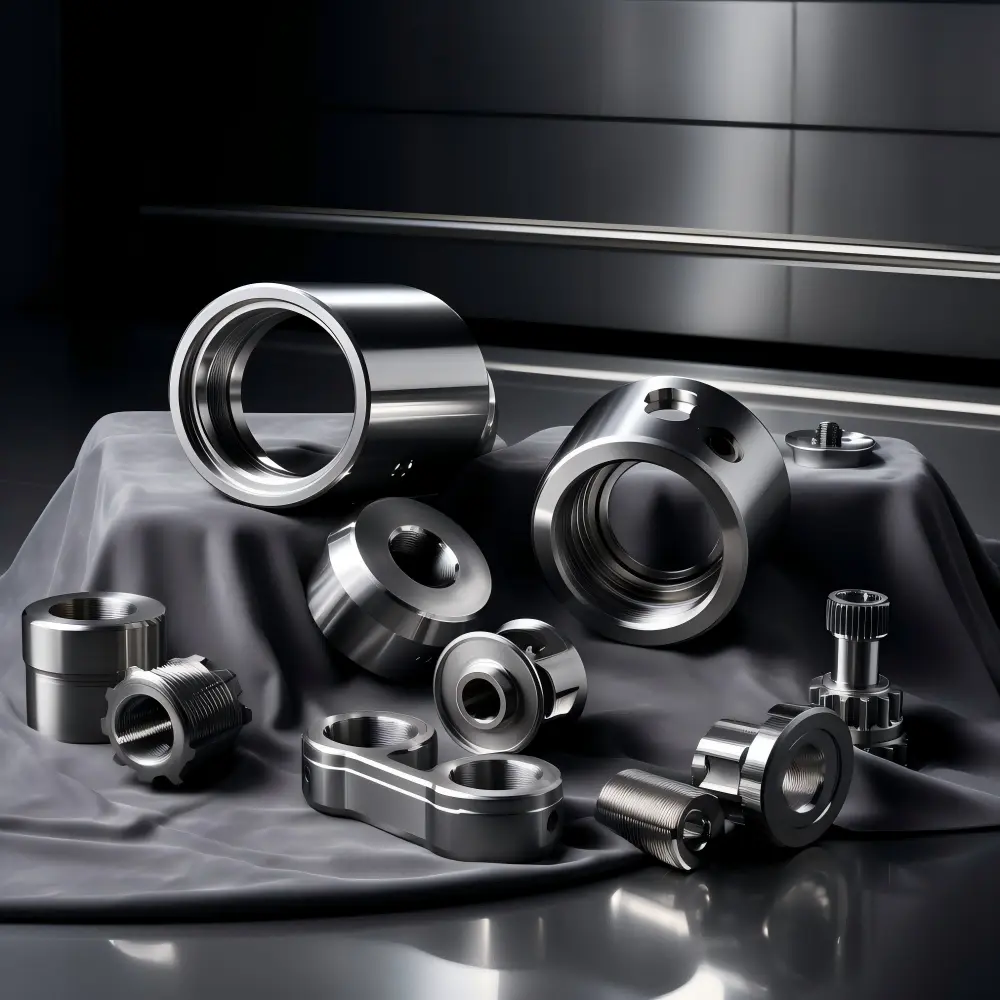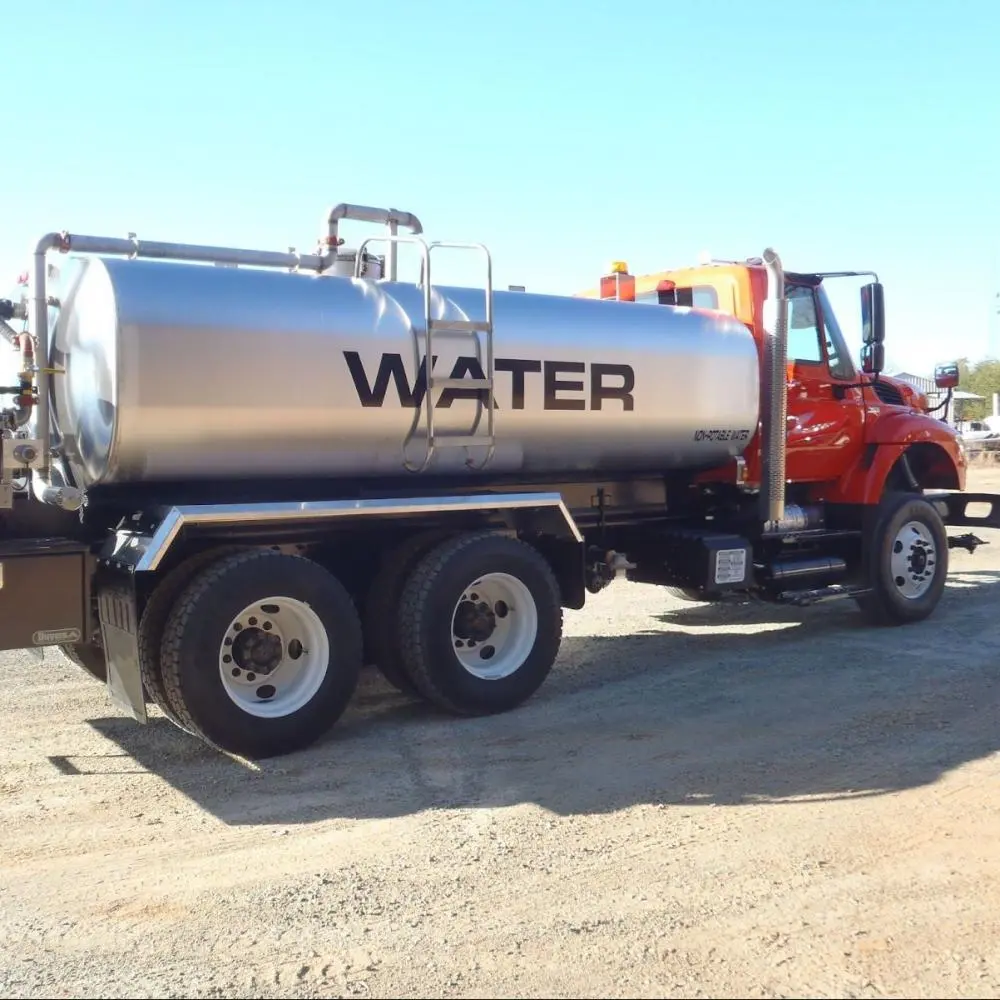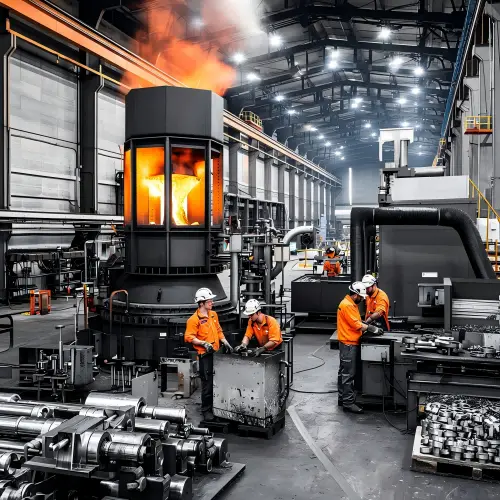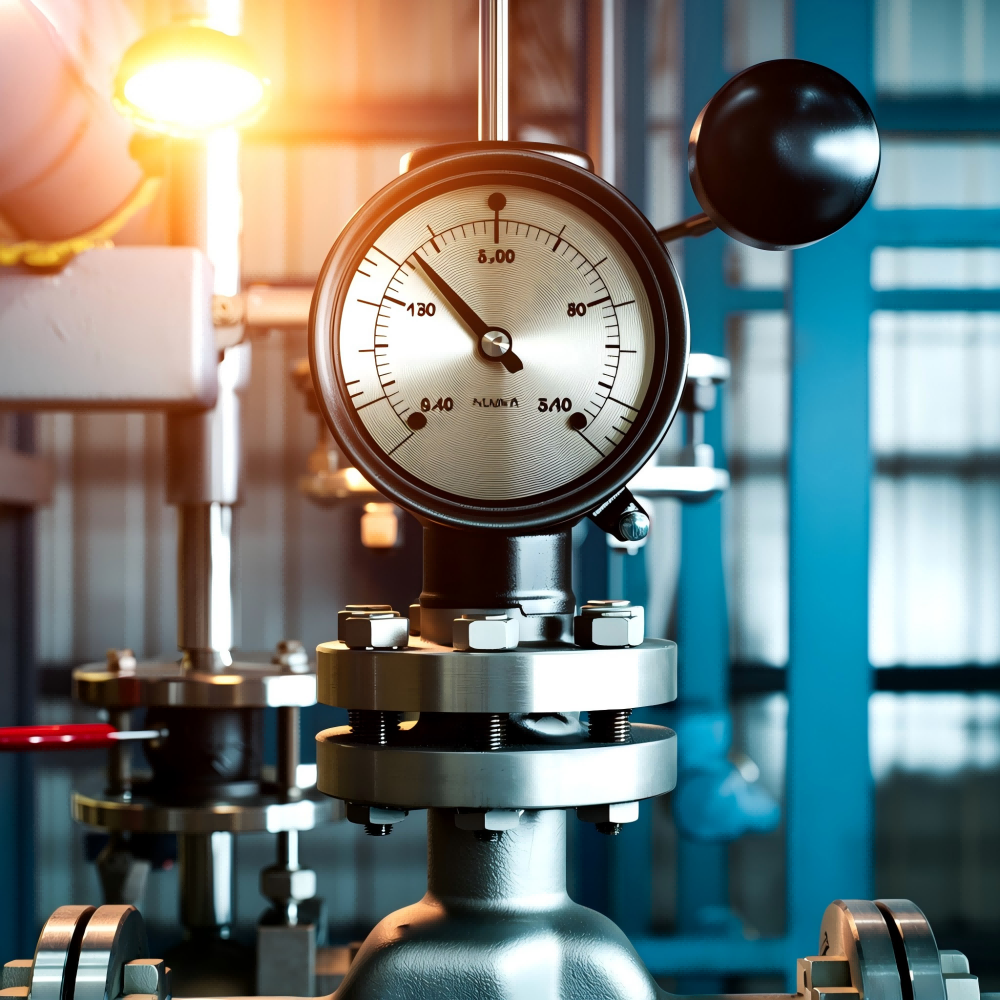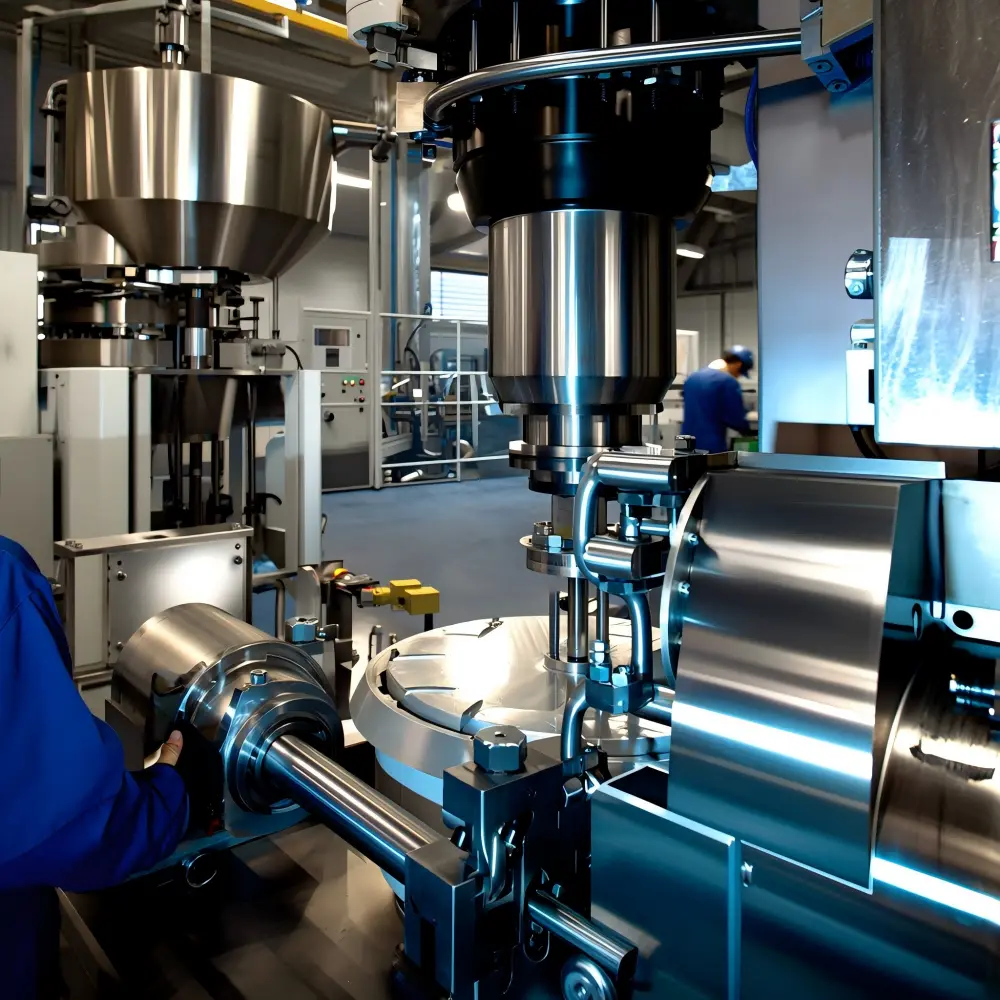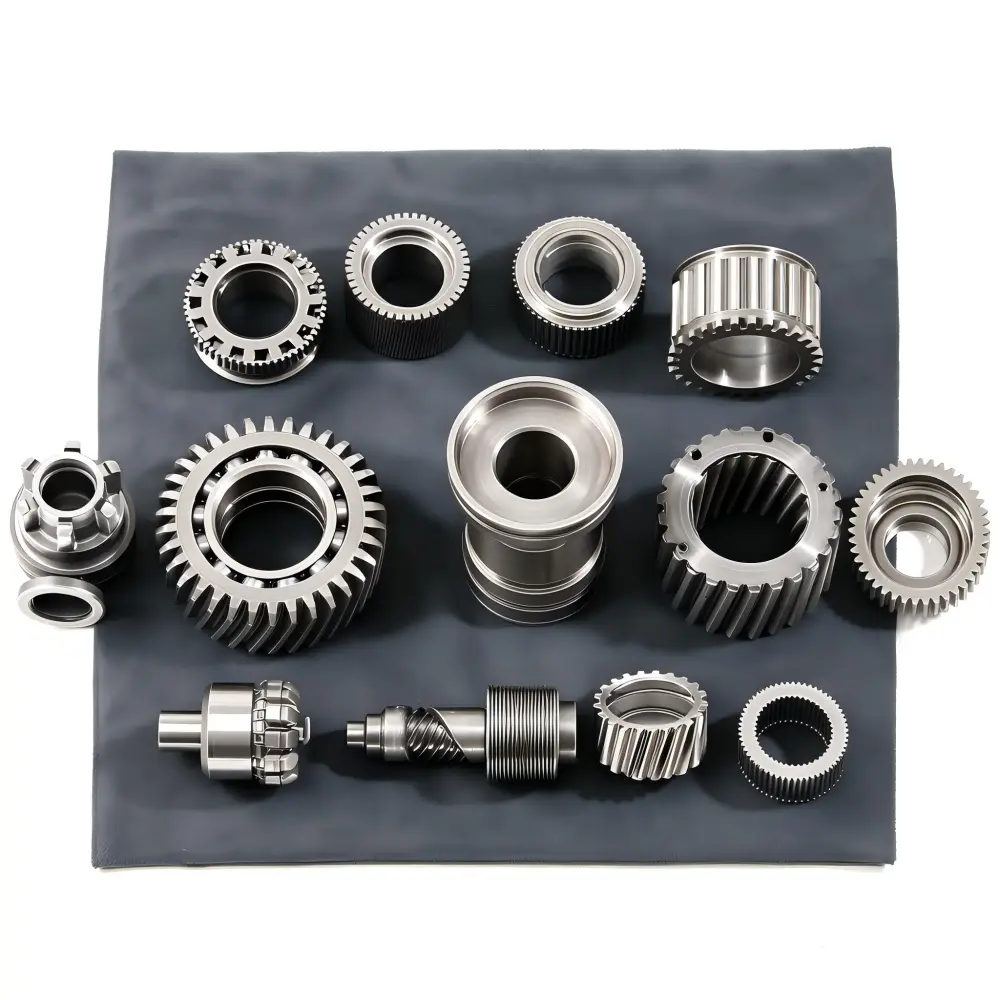How Silicon Bronze Precision Castings Improve Instruments
Silicon Bronze Precision Castings elevate the performance of precision instruments by combining strength, corrosion resistance, and machinability. This alloy withstands harsh environments while maintaining structural integrity. Its durability ensures instruments perform reliably under demanding conditions. The material's machinability allows manufacturers to achieve intricate designs with high accuracy. These qualities make it indispensable for industries requiring precision and longevity in their tools and equipment.
Key Takeaways
- Silicon bronze Precision Castings provide exceptional strength and durability, making them ideal for instruments that must withstand heavy loads and harsh environments.
- The alloy's superior corrosion resistance ensures that precision instruments remain functional and reliable, even in marine and industrial applications.
- Excellent machinability allows manufacturers to create intricate designs with high accuracy, enhancing the overall quality and performance of precision instruments.
- Incorporating silicon bronze into instrument manufacturing reduces maintenance needs and extends the lifespan of tools, offering long-term cost-effectiveness.
- Silicon bronze is particularly beneficial in industries like aerospace, medical, and engineering, where precision and reliability are critical.
- The investment Casting Process used for silicon bronze enhances component quality by achieving tight tolerances and smooth finishes, crucial for optimal instrument functionality.
- Choosing silicon bronze over other materials like stainless steel or aluminum can lead to better performance in demanding applications due to its unique properties.
Material Properties of Silicon Bronze Precision Castings
Strength and Durability
Silicon bronze precision castings exhibit exceptional strength and durability. The alloy's unique composition, primarily a blend of copper and silicon, creates a material capable of withstanding significant mechanical stress. This strength ensures that components made from silicon bronze maintain their structural integrity even under heavy loads or in demanding environments. Durability plays a critical role in extending the lifespan of precision instruments. By resisting wear and tear, silicon bronze reduces the need for frequent replacements, making it a cost-effective choice for manufacturers.
Corrosion Resistance
Corrosion resistance is one of the most notable properties of silicon bronze precision castings. The alloy resists oxidation and degradation when exposed to moisture, chemicals, or extreme temperatures. This property makes it ideal for instruments used in harsh or corrosive environments, such as marine or industrial applications. Unlike other materials that may weaken over time due to rust or chemical reactions, silicon bronze retains its performance and appearance. This resistance ensures that precision instruments remain reliable and functional over extended periods.
Machinability and Precision
Silicon bronze precision castings offer excellent machinability, allowing manufacturers to create intricate designs with high accuracy. The alloy's composition enables smooth cutting, drilling, and shaping processes, which are essential for producing complex components in precision instruments. The investment casting process further enhances precision by achieving tight tolerances and detailed geometries. This level of precision ensures that the final product meets the exact specifications required for optimal performance. Manufacturers rely on silicon bronze to deliver components that combine functionality with aesthetic appeal.
Role of Silicon Bronze Precision Castings in Instrument Manufacturing
Importance of Precision in Instruments
Precision plays a critical role in the functionality and reliability of instruments. Industries such as aerospace, medical, and engineering demand tools that deliver accurate measurements and consistent performance. Even minor deviations in instrument accuracy can lead to significant errors, compromising safety, efficiency, or outcomes. Manufacturers prioritize precision to meet stringent industry standards and ensure customer satisfaction. High-precision instruments enable professionals to perform tasks with confidence, whether conducting delicate surgeries or calibrating complex machinery.
Silicon Bronze Precision Castings contribute to this precision by offering materials with consistent properties and exceptional machinability. The alloy's ability to maintain tight tolerances ensures that every component fits seamlessly within the instrument. This level of precision minimizes operational errors and enhances the overall performance of the tool. By using materials that support intricate designs and exact specifications, manufacturers can produce instruments that meet the highest standards of accuracy.
Contribution of Precision Castings to Instrument Quality
The quality of an instrument depends heavily on the materials used in its construction. Silicon Bronze Precision Castings elevate instrument quality by combining strength, corrosion resistance, and durability. These properties ensure that instruments withstand demanding conditions without compromising performance. For example, instruments exposed to harsh environments, such as marine or industrial settings, benefit from the alloy's resistance to oxidation and wear.
Investment casting processes further enhance the quality of components made from silicon bronze. This method allows for the creation of complex shapes with smooth finishes and precise dimensions. The resulting components not only perform reliably but also exhibit aesthetic appeal, which is essential for instruments used in professional settings. By integrating silicon bronze into their designs, manufacturers can produce instruments that excel in both functionality and longevity.
Advantages of Silicon Bronze Precision Castings in Precision Instruments
Enhanced Performance and Efficiency
Silicon bronze precision castings significantly enhance the performance and efficiency of precision instruments.
The investment casting process used for silicon bronze further contributes to efficiency. This method produces components with tight tolerances and smooth finishes, reducing the need for additional machining or adjustments. By minimizing production inefficiencies, manufacturers can streamline their processes and deliver high-quality instruments faster. The combination of material properties and advanced casting techniques makes silicon bronze an ideal choice for improving both the functionality and productivity of precision instruments.
Longevity and Cost-Effectiveness
Silicon bronze precision castings offer exceptional longevity, making them a cost-effective solution for precision instruments. The alloy resists wear, corrosion, and mechanical fatigue, ensuring that components remain functional over extended periods. This durability reduces the frequency of repairs or replacements, which lowers maintenance costs for end users. Instruments constructed with silicon bronze maintain their structural integrity, even in harsh environments, providing long-term value to industries that rely on dependable tools.
The initial investment in silicon bronze may appear higher compared to other materials. However, its extended lifespan and reduced maintenance requirements offset these costs over time. Manufacturers benefit from fewer production disruptions, while users experience lower operational expenses. This balance of durability and affordability positions silicon bronze as a practical material for precision instruments used in critical applications.
Applications in Key Industries
Silicon bronze precision castings find applications across several key industries due to their versatile properties. In the aerospace sector, the alloy's strength and corrosion resistance make it suitable for components exposed to extreme conditions. Medical instruments benefit from the material's precision and biocompatibility, ensuring accurate performance in sensitive procedures. The engineering industry relies on silicon bronze for tools and equipment that require both durability and intricate designs.
Marine and industrial applications also leverage the advantages of silicon bronze. Its resistance to saltwater corrosion makes it ideal for instruments used in maritime environments. In industrial settings, the alloy withstands exposure to chemicals and high temperatures, ensuring reliable operation. These diverse applications highlight the adaptability of silicon bronze precision castings, making them indispensable for industries that demand high-quality and long-lasting instruments.
Comparison of Silicon Bronze Precision Castings with Other Materials
Silicon Bronze vs. Stainless Steel
Silicon bronze and stainless steel both offer durability and strength, but their properties suit different applications. Silicon bronze provides superior corrosion resistance, especially in environments with exposure to saltwater or chemicals. This makes it ideal for marine and industrial instruments. Stainless steel, while also resistant to corrosion, performs better in environments with high humidity or exposure to acidic substances. Its strength-to-weight ratio surpasses that of silicon bronze, making it a preferred choice for heavy-duty applications.
Machinability sets silicon bronze apart from stainless steel. Silicon bronze allows for smoother cutting and shaping, enabling manufacturers to achieve intricate designs with ease. Stainless steel, due to its hardness, often requires specialized tools and techniques for machining. This difference impacts production efficiency and cost. For precision instruments requiring detailed components, silicon bronze offers a more practical solution.
Silicon Bronze vs. Aluminum
Silicon bronze and aluminum differ significantly in terms of strength and durability. Silicon bronze exhibits higher tensile strength, making it suitable for applications requiring resistance to mechanical stress. Aluminum, while lightweight, lacks the same level of durability. It may deform or wear out faster under heavy loads or harsh conditions. This makes silicon bronze a better choice for instruments that demand long-term reliability.
Corrosion resistance also distinguishes these materials. Silicon bronze resists oxidation and chemical degradation, even in extreme environments. Aluminum, though resistant to rust, can corrode when exposed to saltwater or certain chemicals. This limits its use in marine or industrial settings. Additionally, silicon bronze offers better machinability, allowing for precise and intricate designs. Aluminum, while easier to machine than stainless steel, does not achieve the same level of detail and finish as silicon bronze.
Silicon Bronze vs. Brass
Silicon bronze and brass share similarities in composition, but their performance characteristics differ. Silicon bronze offers greater strength and durability, making it more suitable for demanding applications. Brass, while strong, does not match the mechanical resilience of silicon bronze. Instruments made from silicon bronze withstand wear and tear more effectively, ensuring longer lifespans.
Corrosion resistance further sets silicon bronze apart. Brass is prone to dezincification, a process where zinc leaches out, weakening the material. Silicon bronze, free from this issue, maintains its structural integrity in corrosive environments. This makes it a preferred material for instruments exposed to moisture or chemicals. In terms of machinability, both materials perform well, but silicon bronze achieves tighter tolerances and smoother finishes. This precision enhances the quality and functionality of the final product.
Silicon Bronze Precision Castings elevate the performance and reliability of precision instruments. Their unmatched durability, corrosion resistance, and machinability ensure consistent functionality in demanding environments. Industries such as aerospace, medical, and engineering benefit from the alloy's ability to enhance instrument quality and longevity. By incorporating this material, manufacturers achieve superior results, reducing maintenance needs and improving operational efficiency. Silicon bronze remains a trusted choice for critical applications, offering long-term value and precision. Its role in advancing instrument manufacturing underscores its importance in modern industry.
FAQ
What is silicon bronze, and why is it used in precision castings?
Silicon bronze is an alloy primarily composed of copper and silicon. It is used in precision castings due to its exceptional strength, corrosion resistance, and machinability. These properties make it ideal for creating intricate components that require durability and precision.
How does silicon bronze improve the performance of precision instruments?
Silicon bronze enhances performance by providing superior strength and resistance to wear and corrosion. Its machinability allows manufacturers to produce components with tight tolerances and intricate designs, ensuring reliable and accurate instrument functionality.
What industries benefit the most from silicon bronze precision castings?
Industries such as aerospace, medical, engineering, marine, and industrial manufacturing benefit significantly.
How does silicon bronze compare to stainless steel in precision instruments?
Silicon bronze offers better machinability and corrosion resistance in environments exposed to saltwater or chemicals. Stainless steel, on the other hand, provides higher strength-to-weight ratios and performs well in acidic or humid conditions. Each material suits specific applications based on these differences.
Is silicon bronze cost-effective for precision instruments?
Yes, silicon bronze is cost-effective due to its longevity and low maintenance requirements. While the initial cost may be higher, its durability reduces the need for frequent repairs or replacements, offering long-term value.
Can silicon bronze withstand harsh environmental conditions?
Silicon bronze resists corrosion, oxidation, and mechanical fatigue, making it highly suitable for harsh environments. It performs well in marine, industrial, and high-temperature settings, maintaining its structural integrity over time.
What makes silicon bronze more machinable than other materials?
The alloy's composition allows for smooth cutting, drilling, and shaping processes. This machinability enables manufacturers to achieve intricate designs and precise dimensions without excessive wear on tools or additional machining steps.
Are there any limitations to using silicon bronze in precision instruments?
Silicon bronze may not be ideal for applications requiring extremely lightweight materials, as it is denser than alternatives like aluminum. Additionally, its initial cost can be higher compared to some other materials, though this is offset by its durability and performance.
How does the investment casting process enhance silicon bronze components?
The investment casting process produces components with tight tolerances, smooth finishes, and complex geometries.
Why is silicon bronze preferred over brass for precision instruments?
Silicon bronze offers greater strength, durability, and corrosion resistance compared to brass. It also avoids issues like dezincification, which weakens brass in corrosive environments. These advantages make silicon bronze a more reliable choice for demanding applications.






